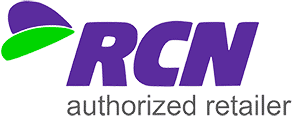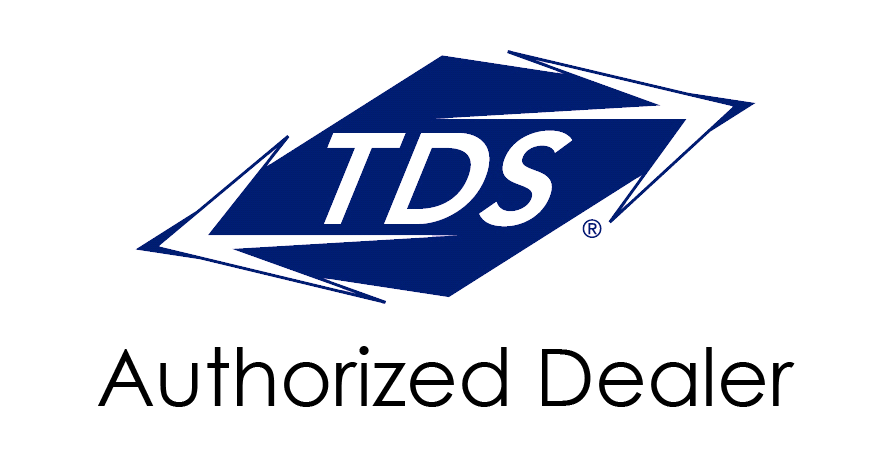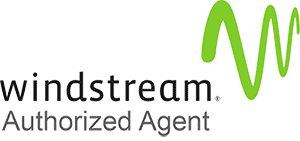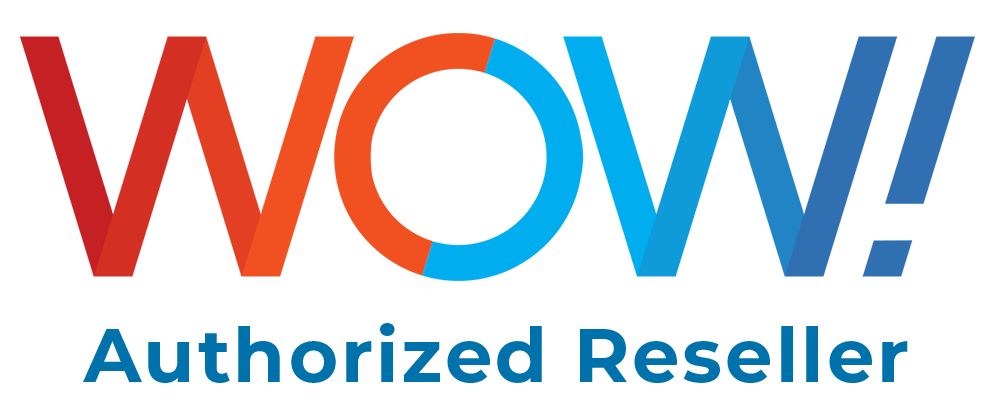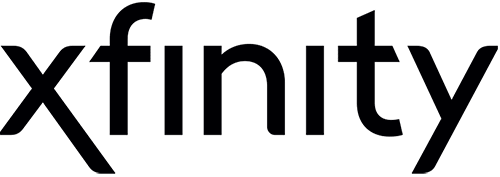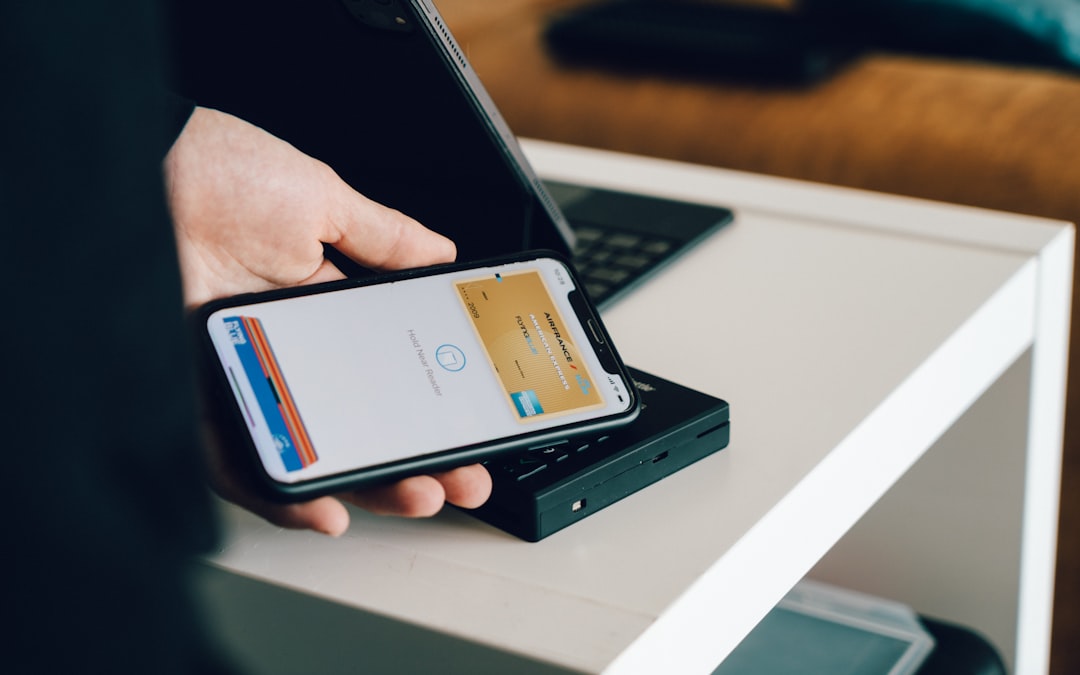 Photo from Unsplash
Photo from Unsplash
Originally Posted On: https://www.highspeedoptions.com/resources/insights/internet-fees-by-provider-guide
Don’t let your internet provider catch you by surprise. Instead, take the mystery out of hidden fees and add-on costs with our complete 2021 Guide to Internet Fees. Gain a better understanding of the charges on your monthly internet bill and learn additional ways you can save.
What You’ll Find
- List of Internet Fees
- Cost of Each Connection Type
- Fees and Costs by Provider
- Additional Ways to Save
Internet Fees to Look Out For
When it comes to internet service, fees differ in both price and meaning from provider to provider. That said, your largest bill will likely be your first bill when you sign up for new service. Internet fees vary by provider, but setting up service almost always comes with starter fees. Before selecting an internet service provider (ISP), be sure to compare the extra fees each provider includes in their plans.
Starter Fees
Standard Activation Fee: $5 – $10
Once you select a provider, it’s time to start the process of getting your home connected. Some providers charge a standard activation fee to create a new customer account. Typically, this appears as a one-time fee on your first bill for $5 – $10. However, if you purchase your service over the phone instead of online, you can likely get an agent to waive this initial fee.
Setup Fee: $10 – $20
After you’ve created an account, it’s time to physically set up service at your home. Usually, providers charge a “setup” fee to schedule a professional installation. This is sometimes baked into installation costs; other times it’s a separate one-time fee around $10 – $20.
Installation Fee: $35 – $200
An installation fee is one of the biggest deterrents for shoppers seeking internet service. Costing up to $200, installation fees cover the cost of man-hours and equipment needed to install service at your house. It includes a truckroll and professional technician support. Sometimes providers will automatically waive this fee for promotions.
WIFi Activation Fee: $10 – $15
There’s a difference between internet and WiFi services. Your initial installation guarantees internet setup, however, some providers charge an additional fee for WiFi service. This involves connecting a router to your modem and ranges between $10 – $15 depending on which provider you go with. Spectrum is one provider known for having this fee.
Spectrum
Recurring Fees
Equipment Rental Fee: $5 – $15
Internet service requires internet equipment. At the bare minimum, you’ll need a modem and ethernet cord to establish a hard-wired internet connection in your home. If you want a wireless connection to use multiple devices at once, you’ll need a modem and router. Providers often lease internet equipment for an extra monthly fee between $5 – $15. To save money, consider investing in your own equipment. It’s a heftier cost upfront but may save you up to $300 over the span of a few years.
Data Caps and Overage Fee: $10+
When a provider sets data caps (or allowances) on internet plans, overage fees usually ensue when you exceed those limits. Typically, providers charge $10 to $15 for a certain amount of data you go over each month. Say you went over 100 GB of data and your provider charges $10 for each 50 GB you go over. You would expect to see an overage fee of $20 added to your bill for that month you exceeded your data cap.
Unlimited Data Cost: $30+
If you constantly go over your data limit or use the internet frequently for things like gaming and streaming, you may want to consider paying for a plan with no data restrictions. Even if your provider doesn’t include unlimited data to start, they may offer it at an additional monthly cost. AT&T is one provider that offers unlimited data for an extra $30/mo.
AT&T
Surcharge: $10 or less
You’ll often see this lumped together in terms and conditions as “taxes, fees, and surcharges.” However, surcharges are extra fees providers pass on to customers to help cover some of the costs of sustaining their local network. They can be anything from a “road work surcharge” to an “internet infrastructure surcharge,” and they typically cost no more than $0.50 each. It’s a relatively small fee, but they add up to $10 depending on how many your provider includes on your monthly bill.
Recovery Fee: $1
Similar to a surcharge, a recovery fee is one that providers will pass on to customers to help lighten the costs associated with building, maintaining, and expanding their network infrastructure. This is a monthly charge that’s typically about $1.
Annual Price Hike: $5 – $30
Every year, providers have to compensate for inflation, demand, technology upgrades, and growth. One way they do this is by incorporating annual price increases to their plans. They can be as much as $20 and generally show up on your bill at the beginning or end of each fiscal year. You can avoid these price hikes by signing a long-term contract that guarantees a fixed price, calling an agent to request a discount, or switching providers altogether.
One-Time Fees
Truckrolls: $50 – $200
A truckroll is basically a house call from your provider. If you need service installed or are experiencing troubleshoot issues that can’t be resolved over the phone, your provider will send a professional technician to your home (or roll a truck out) to assist you with your internet service. Truckrolls are more expensive than most internet fees since they account for the labor, equipment, and travel required for a house visit. Depending on your service issue, you may be able to get this fee waived.
Late Payment Fees: $10 – $25
Regardless of if you have a contract or not, you can still be penalized for late payments. Many providers provide two-day grace periods to accommodate unexpected events, however, we don’t recommend making this a habit. If you are late on a payment, your provider may charge you a late payment fee as high as $25 each time it happens. Then, if things persist and your service is cut off, you may be charged a reconnection fee to reactivate your service.
Reconnection (or Restoral) Fee: $20 – $50
If your account is suspended for nonpayment or temporary pause on your part, providers may charge a reconnection (or restoral) fee to reactivate your internet service. This fee is intended to discourage late payments, as well as protect providers from subscribers abusing their service arrangement. Reconnection fees range anywhere from $20 – $50 depending on your provider.
Early Termination Fees: $100 – $400
As much as we try to plan, life happens. In cases where you have to cancel your internet service prematurely, there may be fees associated with this. Providers charge an early termination fee (ETF) in order to try and recoup some of the investment they made in setting up your service and using resources to support it. ETFs can run as high as $400 depending on what provider you go with. If you move frequently, don’t want to be stuck in a contract, or simply want the freedom to change providers, try finding a provider like Spectrum or Centurylink that doesn’t have a cancellation fee.
In general, the best way to avoid miscellaneous charges on your monthly bill is to ask an agent upfront about all costs before signing up for a new service. In many cases, you can negotiate your rate down, land a promotional discount, or have those bigger fees waived altogether. After all, the worst thing they can do is say “No.”
Cost of Each Connection Type
If you have more than one internet option near you, you might want to compare connection types if cost is your main concern. Because each type of internet offers different speed ranges and availability, they also affect your bottom line differently.

DSL
Operating on pre-existing phone lines, DSL is a common type of internet in the U.S. However, its technology limits the amount of bandwidth internet companies are able to provide customers. For these reasons, DSL is typically the best choice for shoppers with a tight budget in mind, with starter plans beginning as low as $20/mo.
Average download speeds: 1-150 Mbps
Starting cost per month: $20-$45
Top DSL providers: AT&T, CenturyLink, EarthLink, Windstream
Cable
Cable internet is three times more available than fiber and makes up 3 in 5 internet subscribers in the U.S. today. It’s also known for its reliability and comparable download speeds to fiber, though, available at more affordable prices. It’s speeds and reliability attract budget-conscious shoppers who don’t want to compromise internet performance for the price.
Average download speeds: 25-500 Mbps
Starting cost per month: $30-$50
Top DSL providers: Cox, Mediacom, Spectrum, Xfinity
Fiber
While fiber offers the fastest speeds and reliability of all connection types, it’s relatively new. Providers are rapidly trying to grow their fiber-optic networks, yet it requires a substantial amount of money and time to complete. For these reasons, fiber is both more expensive and less available than other internet options. While prices are higher for this service, many providers offer cheap introductory prices that make it worthwhile for customers.
Average download speeds: 25 Mbps – 1 Gbps
Starting cost per month: $30-$65
Top DSL providers: AT&T, CenturyLink, Verizon, Xfinity
Satellite
Satellite is the most accessible internet option, however, it is significantly slower than other connection types due to the distance data must travel to satellites orbiting Earth. Also, satellite technology is more susceptible to service interruptions due to inclement weather. It’s is a great option for rural areas where there aren’t many providers present, yet the maintenance and equipment it requires make it more expensive.
Average download speeds: 25 Mbps – 1 Gbps
Starting cost per month: $50-60
Top DSL providers: HughesNet, Viasat
Fees and Costs by Provider
AT&T
Installation Fee: Up to $99
Equipment Rental Fee: Up to $10/mo.
Late Payment Fee: $9.25 per incident
Data Overage Fee: $10 per 50 GB; $30/mo. for unlimited
Early Termination Fee: Up to $180
CenturyLink
Installation Fee: Up to $99
Equipment Rental Fee: Up to $15/mo.
Late Payment Fee: $10-$25 per incident
Data Overage Fee: None
Early Termination Fee: None
Cox
Installation Fee: Up to $75
Equipment Rental Fee: Up to $10.99/mo.
Late Payment Fee: $25 per incident
Data Overage Fee: $10 per 50 GB
Early Termination Fee: Up to $120
EarthLink
Installation Fee: Up to $69.95
Equipment Rental Fee: Up to $6.95/mo.
Late Payment Fee: None
Data Overage Fee: None
Early Termination Fee: Up to $200
Frontier
Installation Fee: Up to $75
Equipment Rental Fee: Up to $10/mo.
Late Payment Fee: $10 per incident
Data Overage Fee: None
Early Termination Fee: Up to $400
HughesNet
Installation Fee: Up to $199.99
Equipment Rental Fee: Up to $14.99/mo.
Late Payment Fee: None
Data Overage Fee: None
Early Termination Fee: Up to $400
Mediacom
Installation Fee: Up to $99
Equipment Rental Fee: Up to $12/mo.
Late Payment Fee: $10 per incident
Data Overage Fee: $10 per 50 GB
Early Termination Fee: $240
MetroNet
Installation Fee: None
Equipment Rental Fee: Up to $9.95/mo.
Late Payment Fee: $25 per incident
Data Overage Fee: None
Early Termination Fee: Up to $150
Optimum
Installation Fee: Up to $149.99
Equipment Rental Fee: Up to $10/mo.
Late Payment Fee: $10 per incident
Data Overage Fee: None
Early Termination Fee: None
RCN
Installation Fee: Up to $49.99
Equipment Rental Fee: Up to $13/mo.
Late Payment Fee: $2 per incident
Data Overage Fee: $10 per 50 GB
Early Termination Fee: None
Spectrum
Installation Fee: Up to $49.99
Equipment Rental Fee: Up to $5/mo.
Late Payment Fee: $8.95 per incident
Data Overage Fee: None
Early Termination Fee: None
Suddenlink
Installation Fee: Up to $149.99
Equipment Rental Fee: Up to $10/mo.
Late Payment Fee: $10 per incident
Data Overage Fee: None
Early Termination Fee: None
TDS
Installation Fee: Up to $49.95
Equipment Rental Fee: Up to $14.95/mo.
Late Payment Fee: $10 per incident
Data Overage Fee: $20 per 250 GB (up to $60 per bill)
Early Termination Fee: 50% of unpaid service agreement
Verizon
Installation Fee: Up to $99
Equipment Rental Fee: Up to $15/mo.
Late Payment Fee: $5 per incident
Data Overage Fee: None
Early Termination Fee: None
Viasat
Installation Fee: Up to $99.99
Equipment Rental Fee: Up to $9.99/mo.
Late Payment Fee: $ per incident
Data Overage Fee: None
Early Termination Fee: Up to $360
Windstream
Installation Fee: Up to $35
Equipment Rental Fee: Up to $11.99/mo.
Late Payment Fee: % of bill balance
Data Overage Fee: None
Early Termination Fee: None
WOW!
Installation Fee: Up to $50
Equipment Rental Fee: Up to $10/mo.
Late Payment Fee: $5 per incident
Data Overage Fee: None
Early Termination Fee: Up to $345
Xfinity
Installation Fee: Up to $89.99
Equipment Rental Fee: Up to $14/mo.
Late Payment Fee: $10 per incident
Data Overage Fee: None
Early Termination Fee: $10/mo. remaining
*Not all internet speeds available in all areas. Availability based on service address. Pricing varies by location and availability. All prices subject to change at any time. Additional fees and terms may apply. As of 8/2/21.
Additional Ways to Save
Whether you already have an internet provider or are looking to switch to a cheaper option, there are several additional ways to save on your service. Internet plans and pricing may seem fixed, but you can try these helpful tips to ensure you always get the speeds and services you pay for.
Negotiate
It may seem like internet prices are firm, but many times, providers offer matched pricing or special discounts to customers that simply ask about it. A little bargaining could go a long way in saving you money, so consider negotiating when you feel your bill is too high. For example, if you find out your neighbor pays less than you for the same service, see competitors offer lower prices, or receive a discount code on a mail flyer, talk to an agent about matching those prices. If they decline, it may be time to look at other options.
Potential Savings: $100-$200 per year
Use Your Own Equipment
Some providers require customers to use their leased equipment for services. However, there are also plenty who don’t. For instance, try finding a provider that gives you the option to use your own compatible equipment and avoid those monthly rental fees altogether. It’s a higher initial cost to purchase a router upfront, but you will save money in the long run.
Potential Savings: $5-$15 per month
Watch Your Data Usage
Typically, providers with data caps charge an overage fee when you exceed your data limit. These charges cost about $10 per 50 GB of data you exceed on your plan, with total overage fees coming in as high as $100/mo depending on your provider. You can avoid these fees by either monitoring your monthly data usage closely or upgrading your data allowance to better suit your digital lifestyle.
Potential Savings: $10-$100 per month
Sign a Contract
Internet providers who boast about their “no contract” plans sound like great deals, but be wary of these plans. Without a contract, your provider has the ability to increase your bill whenever they want (yikes!). Internet contracts guarantee that your monthly bill will remain the same for a set period of time, and it may even offer a lower price compared to no-contract plans. Always ask your sales agent if they offer contracts, and if so, how long the term periods are. You may save hundreds of dollars doing this.
Potential Savings: $100-$200 per year
Shop Around
When you need cheap internet, sometimes your best option is to shop around. Most internet providers increase prices after a set promotional period, causing your bill to sometimes double. To avoid tanking the bank, consider switching providers at the time of your contract change. Introductory prices for first-time subscribers are usually lower or may come with no contracts. Remember, though, this is not a long-term solution to budget shopping, but rather a way to find the right provider for you. Using HighSpeedOptions, you can compare the best providers, prices, and plans available near you.
Potential Savings: $200-$800 per year
Speak Up About Poor Service
If you ordered a 75” TV online and received a 50” TV instead, you would return the wrong item and request a refund or replacement. In the same way, if you pay for internet speeds up to 50 Mbps and rarely receive those speeds, you would contact your provider to question the poor connection. If you’re unsatisfied with your internet, be sure to speak up about the sub-par service and request technical support. In addition to remedying your issue, they may even offer a coupon or extra discount to make up for it.
Potential Savings: $0-$150 per year
Downgrade Your Internet Plan
Everyone has a certain budget in mind when it comes to their internet plan, and sometimes, a budget trumps all other internet needs. You may have to sacrifice some speed with this route, but downgrading your internet plan can significantly reduce your monthly payment and save you hundreds of dollars in the long run. Most providers offer a wide range of speeds, so it’s likely that you have 2-4 options to choose from near you.
Potential Savings: $10-$60 per month
Lastly, simply asking questions about added fees you don’t understand or fine print that’s unclear can save you money. Your provider is much more likely to offer assistance and work with you if you show interest in their service.
The Bottom Line
Every internet provider has something to offer, yet families and lifestyles all have different internet needs. Plans and availability vary by location and constantly change to keep up with current industry standards. To help, we break down everything you need to know about hidden fees and ways to save, so you’re fully prepared when shopping for new service.
On the whole, you can use this guide and other HighSpeedOptions Resources to compare the latest deals near you and save money where you may not even think possible.










